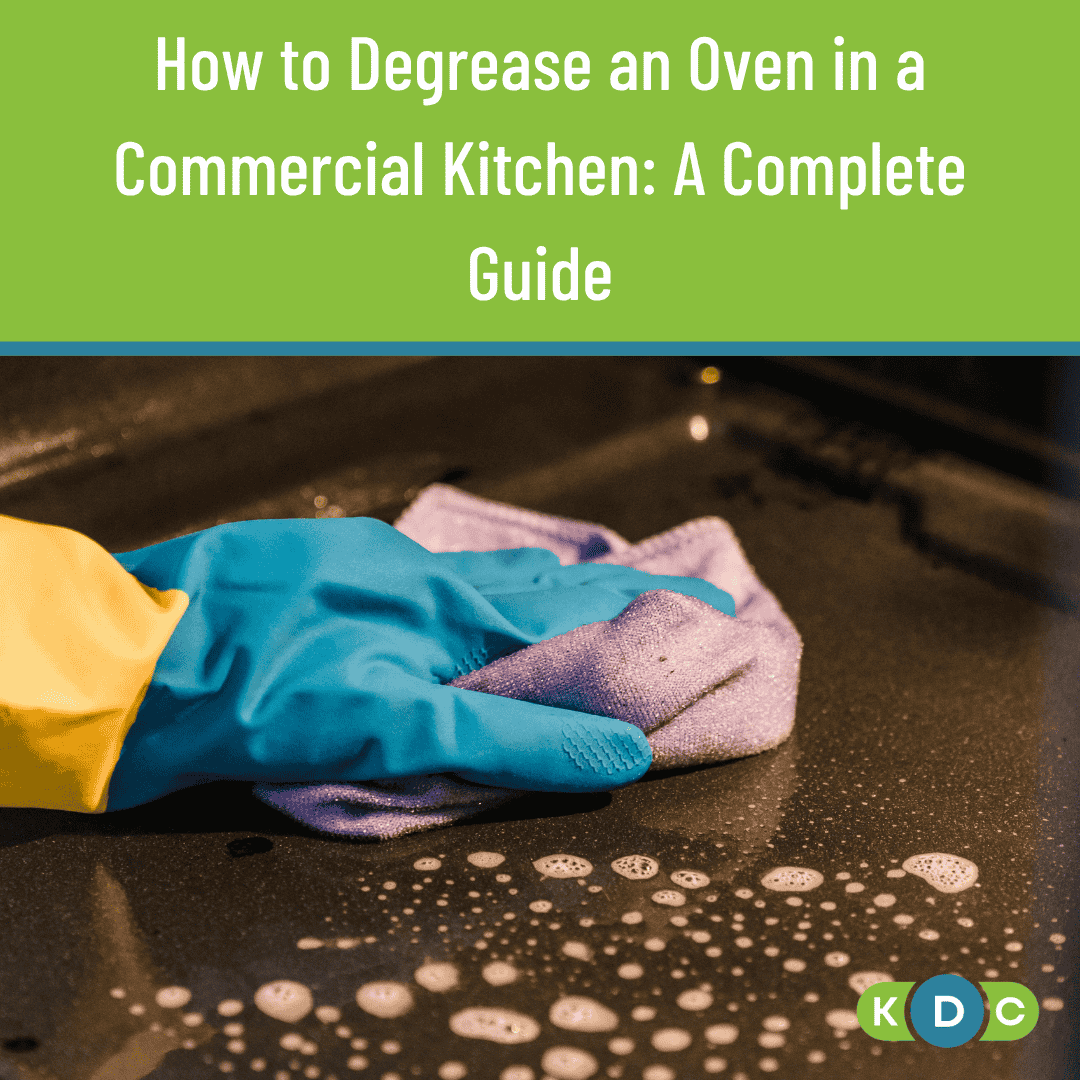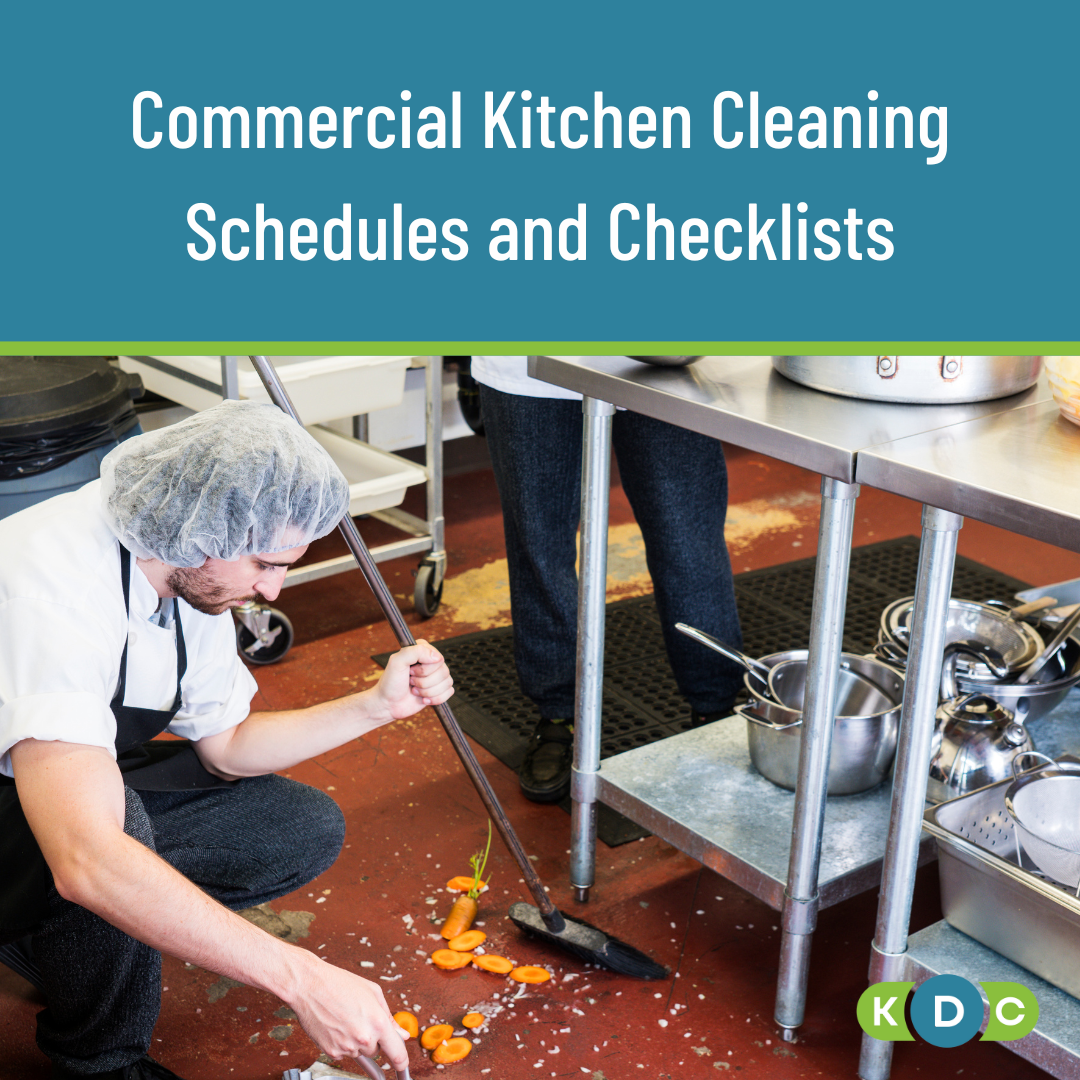The Best Eco-Friendly Kitchen Cleaning Products for the Commercial Kitchen
Environmentally friendly cleaning for commercial kitchens made easy. Non-toxic degreasers and sustainable kitchen hygiene solutions that actually work.
If you're running a commercial kitchen, you know that keeping things spotless isn’t just about looking good for the health inspector. It’s about protecting your staff, your customers and, frankly, the planet we all share. Traditional cleaning products might get the job done, but they often come loaded with harsh chemicals that can leave everyone gasping for fresh air.
The good news? Going green with your cleaning doesn't mean compromising on cleanliness.
Eco-friendly cleaning products have come a long way. Today, they’re every bit as tough on grease and grime as their chemical-heavy cousins. At KDC Hygiene Ltd, we’ve seen firsthand how safe cleaning products for restaurants and commercial kitchens in the UK can transform workspaces into healthier, more sustainable environments. The importance of eco-friendly choices has never been clearer, so making the switch is a smart business decision that pays off in more ways than one.
Why going green makes proper sense for your kitchen
Toxic cleaning products are everywhere in commercial kitchens − and they're not doing anyone any favours. Those conventional cleaners packed with ammonia, chlorine and other nasties? They’re irritating eyes, lungs, noses and throats left, right and centre. Your staff are breathing in fumes while they scrub. What’s more, those chemical residues don’t just vanish. They linger on surfaces where food gets prepped and vaporise into the air, turning your kitchen into a bit of a chemical soup.
Worse still, when these harsh chemicals get rinsed down the drain, they’re off to wreak havoc on aquatic life. Not exactly the sort of legacy you want to leave behind, is it?
Green cleaning for commercial kitchens isn’t just kinder to the environment, it’s backed by proper science. Studies show that eco-friendly alternatives are just as effective as traditional cleaning methods at shifting grease, bacteria and all the gunk that builds up in a busy kitchen. For example, in one study of eco-friendly vs traditional cleaning in hospital settings, the researchers found the “green” protocol matched traditional cleaning methods hygienically but delivered significant environmental advantages, making it a sustainable hospital cleaning solution.
By switching to non-toxic options, you’re creating an environmentally friendly workspace where your team can breathe easier, literally. Plus, you’re protecting your customers from unnecessary chemical exposure and doing your bit for sustainable kitchen cleaning. So by choosing Earth-safe cleaners, you win all round.
The essential eco-friendly kit for high-demand kitchens
Your kitchen works hard, so your cleaning products need to work harder. Here’s what you should be stocking:
Degreasers that mean business
When it comes to tackling industrial-strength grease (such as from mineral oils, animal fats, or vegetable-based residues), you need a degreaser that doesn’t mess about. The best kitchen cleaning products in this category are those non-toxic degreasers that can handle heavy pollution without leaving your staff coughing. These eco-friendly degreasers replace the environmentally hazardous options you’ve probably been using for years − and they’ve got proper cleaning power to prove it.
Look for options like GreenOrange Eco-Friendly Degreaser or Eco-Point Bio Degreaser, which are free from volatile organic compounds (VOCs) − carbon-containing chemicals that release gases into the air that can cause respiratory irritation and contribute to indoor air pollution.
Multi-surface cleaners and sanitisers
Nobody wants a cupboard groaning under the weight of 17 different bottles. Multi-purpose cleaners and concentrates are your best mates here, as they cut down on clutter and reduce the need to keep loads of different agents in stock.
Professional ranges like Delphis Eco (Ecolabel-accredited, if you’re keeping track) and Jangro Enviro offer sanitisers and multi-surface cleaners that are designed for restaurants and commercial settings.
The key is making sure your sanitiser actually works, so check it’s been tested against standards like EN1276 and EN14476, European standards used to test and certify the efficacy of sanitisers and disinfectants. You need something that’ll take out bacteria, yeasts, fungi/mould and viruses, not just make things smell nice.
Specialised cleaning for specific jobs
Ovens, stovetops and grills
Baking soda is your secret weapon for cleaning your stovetops, oven or grill. This natural ingredient is an excellent degreaser: You can whip up a paste with water that’ll lift burnt-on food like nobody’s business. It’s gentle yet effective, and it won’t leave chemical residues on surfaces where you’re cooking.
Stainless steel equipment
Got stainless steel sinks, fridges and worktops? White vinegar diluted with water gives you a streak-free shine and shifts hard water stains beautifully. Just go easy, as strong acidic cleaners can damage the chrome layer on 304 stainless steel, so stick to mild solutions.
Dishwashing
Refillable dishwashing liquids and powders available in bulk (like those from Green Blue You) are brilliant for reducing single-use plastic waste. Their professional machine dishwash liquid and rinse aid come in proper commercial sizes, so you’re not constantly ordering more bottles.
Floor cleaners
Your floors take a proper battering, so you need a floor cleaner that can handle heavy foot traffic and spills without leaving a toxic residue. Look for plant-based formulas that are tough on grime but safe for staff who are on their feet all day.
Recommended products include Jangro Premium F3 Floor and Surface Cleaner, Bio-D Multi Surface Sanitiser and Cleanline: Eco Lemon Floor Gel.
5 Ways to make sustainability part of your daily routine
Swapping products is a great start, but sustainable kitchen hygiene goes beyond what’s in the bottle. You need to think about your whole approach to keeping things clean.
1. Watch your water usage
Commercial kitchens guzzle water like nobody’s business. So fix those dripping taps promptly and invest in water-efficient dishwashers. Small changes add up to massive savings over time.
2. Sort out your waste management
Proper waste management is essential. Set up comprehensive recycling and composting programmes with clearly labelled bins for food scraps, packaging and general waste. Your team needs to know what goes where, so make it obvious.
3. Consider energy efficiency
Schedule your deep cleaning tasks during off-peak hours when energy demand is lower. Keep your appliances well-maintained so they run efficiently. And use natural light wherever possible to cut down on electricity use.
4. Have the right cleaning tools
- Microfibre cloths and mop heads: These trap dirt and bacteria efficiently without needing harsh chemicals. They're reusable, durable and brilliant at getting surfaces properly clean.
- Steam cleaners: If you’ve not tried one, you’re missing out. Steam cleaners use water vapour to sanitise surfaces, eliminating grease and bacteria without a single chemical in sight. They’re low-moisture, quick-drying and perfect for commercial kitchens.
- HEPA filter vacuums: These capture fine particles and allergens, improving your indoor air quality significantly. Your staff will thank you.
- Compostable sponges and brushes: Swap plastic scouring pads for natural products made from bamboo or coconut fibres. They work just as well and won’t sit in a landfill for the next hundred years.
5. Focus on prevention
Train your staff to tackle spills as soon as they happen and regularly inspect equipment for leaks or wear and tear. Staying on top of the small stuff means you won’t need intensive deep cleaning quite so often.
Choosing the right eco-friendly brands
Not all green cleaning products are created equal, so here’s what to look for when you're shopping around:
Check the ingredients list
Go for plant-based formulas that are fully biodegradable and free from harsh chemicals. Look for products that are vegan and cruelty-free. Steer clear of anything containing VOCs (volatile organic compounds), phosphates, sulfates, parabens, or synthetic fragrances. These nasties can harm indoor air quality and pose risks to your staff. Choose non-toxic options that are safe to use around your team.
Packaging and waste reduction
Prioritise concentrated formulas, bulk options, or refillable cleaning systems. Concentrates are brilliant because you’re not paying to ship water around the country, which cuts emissions significantly. Look for bottles made from recycled and recyclable materials, and support companies committed to zero-waste practices. Brands like Ocean Saver sell reusable bottles with innovative refill pods that eliminate single-use plastic bottles entirely.
Certifications worth looking for
Don’t just take a brand’s word for it, look for credible certifications.
- Leaping Bunny confirms cruelty-free products.
- The Vegan Society logo guarantees no animal-derived ingredients.
- B Corp Certification shows a company meets high environmental and social standards.
- Made in Britain, Royal Warrant and Living Wage Employer demonstrate ethical commitments.
- The EU Ecolabel indicates environmental excellence.
- FSC (Forest Stewardship Council) relates to sustainable packaging materials.
Transparency and real-world performance
Choose brands that actually disclose their ingredients and make sure these are cleaning products that actually work. Read reviews and ask other kitchen managers rather than just taking the marketing blurb at face value.
Quick natural fixes for routine jobs
Sometimes you just need a simple solution for everyday kitchen surfaces. Here are some natural cleaning products that can supplement your professional range:
- White vinegar: Mix with water in a spray bottle for a brilliant purpose cleaner. Perfect for shining taps, stainless steel and windows.
- Baking soda: Excellent for scrubbing burnt-on food and grease. Mix with water to form a paste and watch it work its magic.
- Citric acid: Bung some in your dishwasher to dissolve mineral deposits and keep it running smoothly.
These eco-friendly options are great for quick wipes and routine maintenance, but remember: They should support, not replace, your professional-grade sanitisers and degreasers. Commercial kitchens need sustainable, certified products to maintain proper hygiene standards.
Partner with us for a greener future
Switching to green cleaning doesn’t mean lowering your standards, it means raising them. You get a safer working environment for your staff, reduced plastic waste and cleaning solution performance that actually delivers.
Whether you need guidance on choosing the right eco cleaner for your specific needs or you’re after professional cleaning services to get your kitchen properly sparkling, KDC Hygiene Ltd is here to help. We’re committed to sustainable practices that protect your team, your customers and the environment.
So give us a shout. We’ll help keep your kitchen clean, compliant and kind to the planet.
FAQs
Are eco-friendly cleaners as effective as traditional products?
Absolutely. Studies show that green cleaning products are just as effective at shifting grease and bacteria as chemical-heavy alternatives. Modern eco-friendly degreasers and sanitisers are designed for commercial use and deliver proper cleaning power without the toxic nasties.
What certifications should I look for when choosing green cleaning products?
Look for Leaping Bunny (cruelty-free), The Vegan Society logo, B Corp Certification and the EU Ecolabel. UK-specific marks, like Made in Britain, Royal Warrant and Living Wage Employer, also demonstrate a brand’s ethical commitments.
Can I use natural products like vinegar and baking soda in a commercial kitchen?
Yes, but only as supplements to your professional-grade cleaners. White vinegar and baking soda are brilliant for routine maintenance and quick jobs, but they can’t replace certified sanitisers and degreasers that meet hygiene standards like EN1276 and EN14476.
How can switching to eco-friendly cleaning products benefit my staff?
Non-toxic cleaners eliminate harsh chemical fumes that irritate eyes, lungs and throats. Your team will breathe easier and face less exposure to VOCs and other harmful substances, creating a healthier working environment all round.
What’s the best way to reduce plastic waste from cleaning products?
Prioritise concentrated formulas, bulk options and refillable systems. Concentrates cut down on packaging and shipping emissions, while brands like Ocean Saver offer refill pods that eliminate single-use plastic bottles entirely.













